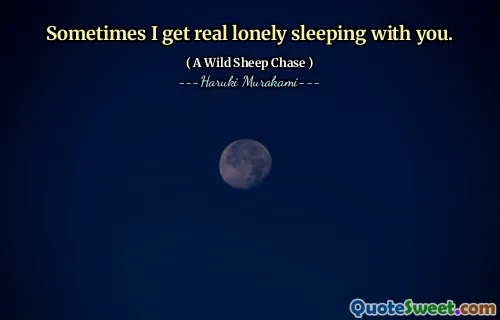We can, if we so choose, wander aimlessly over the continent of the arbitrary. Rootless as some winged seed blown about on a serendipitous spring breeze.Nonetheless, we can in the same breath deny that there is any such thing as coincidence. What's done is done, what's yet to be is clearly yet to be. In other words, sandwiched as we are between the everything that is behind us and the zero beyond us, ours is an ephemeral existence in which there is neither coincidence nor possibility.
In this passage from Haruki Murakami's "A Wild Sheep Chase," the author reflects on the nature of existence, suggesting that we can freely traverse life without direction, much like a seed carried by the wind. Despite this apparent randomness, he asserts that coincidences do not truly exist; the past is unchangeable while the future remains unknown, highlighting the transient nature of our lives.
Murakami emphasizes that our experiences are shaped by the juxtaposition of everything that has occurred and the void that lies ahead. This reveals a contemplative view of life, where the events we encounter are neither purely coincidental nor filled with potential, leading to a sense of ephemerality that defines human existence.






